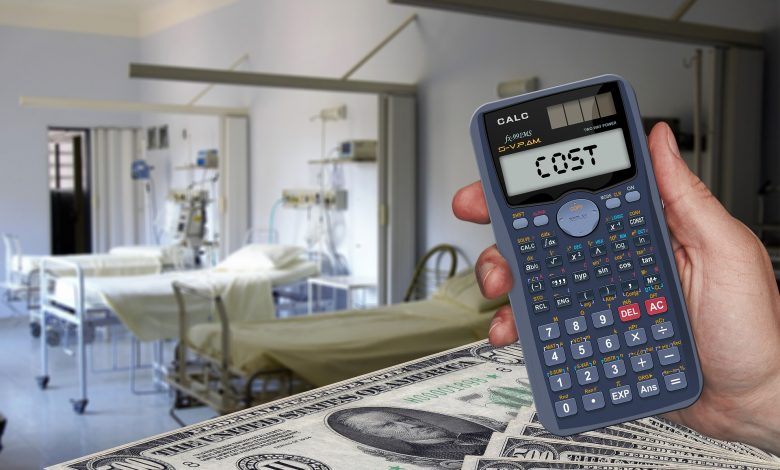
When a patient goes to the hospital, the health care provider will bill them after the treatment. The patient’s insurance may cover all or most of the cost. Uninsured consumers can also arrange a payment plan in the future. However, ignored and unpaid medical bills will certainly affect a patient’s credit score. This can happen due to an error that the insurance company or the health care provider made. In other situations, patients simply can’t afford to make a payment.
Nevertheless, there are steps that you can take to remove medical bills that are affecting your credit. If someone made a mistake, the credit bureaus will work with you on fixing it. Moreover, some patients can negotiate a lower amount or get their debt entirely waived off. In fact, some nonprofits exist to help consumers pay off their medical expenses. This article will outline the different things that you can do to remove medical bills from your credit check.
Review the Bills and Dispute Errors
In short, the employees at the hospital’s billing department and the insurance company are humans, which makes them prone to making errors. The hospital could have mistakenly sent the claim to the wrong recipient. Similarly, the insurance company may refuse to make a payment because your name was misspelled, and therefore, they couldn’t identify your coverage. Perhaps more importantly, the billing department could have sent your balance to collections too early. Because of this, impacted consumers should review their charges and ensure that they’re error-free.
First of all, unpaid health care expenses only affect your credit when they become past-due for more than 180 days. In other words, medical bills that are less than six months old cannot affect your credit score. The latest version of the VantageScore model doesn’t take them into account. Moreover, the three credit bureaus (Equifax, TransUnion, and Experian) will remove any medical bills that are affecting your credit report after you file a dispute.
Secondly, it is important to check your insurance coverage and how it applies to the unpaid hospitalization or treatment bill. For example, if you were required to take care of a certain co-pay (while the insurance company covers the rest), you certainly don’t owe the full amount. The insurer may even pay the entire balance. Above all else, you should make sure that you haven’t paid the bill already. As we previously mentioned, it is possible that someone from the hospital or insurance company made a mistake.

Filing a Dispute to
Once a consumer discovers an error, they can file a dispute with one of the three credit bureaus. Alongside the claim, you should include evidence for why you’re disputing it, such as a receipt (if you made a payment) or proof of insurance (if your policy covers the health procedure). Moreover, a cover letter that explains why you’re disputing the account would definitely help. After that, if the credit bureau determines that you don’t owe anything, they will remove the medical bills that are affecting your credit. When one of the bureaus identifies the error, they will immediately notify the other two entities so that they similarly remove the inaccurate accounts from their records, as well.
Paying the Bill
Some debt collectors are flexible, especially when it comes to unpaid medical bills. For example, patients can make monthly installments. Most debt collectors will accept small recurring payments, based on what the consumer can afford. Patients could also negotiate a lower amount or a reduced interest rate. Unpaid medical bills will still affect your credit until they are fully paid off. However, reducing your debt balance certainly works in your favor. Consistent and timely payments, meanwhile, build up your credibility in the eyes of lenders, landlords, and financial institutions.
A statute of limitations exists on all debts (medical and otherwise). That is to say, bills are removed from your credit score once they become several years past due. The number of years varies from one state to another. Just as importantly, the more time that goes by, the less impact that they have on your credit score. Yet once you make a payment or even acknowledge that the unpaid balance is yours (i.e. to the debt collector on the phone or in writing), the statute of limitations restarts. Because of this, patients should consider if paying off an old debt is worth it, especially when they’re going to reach the statute of limitations in one or two years.
It is important to weigh that against the timeline of your future goals (such when you plan on getting a mortgage or purchasing a car). Above all else, consumers should do their research before they negotiate with debt collectors, particularly when it comes to their rights and obligations.
Financial Assistance and Medical Bills
First of all, the hospital may waive off/remove unpaid medical bills, even more so when they’re a nonprofit organization. Similarly, the health care provider may lower the amount. You could inquire about the hospital’s policies and options by directly contacting their billing department. Secondly, there are other financial assistance programs that specifically help uninsured and low-income patients (amongst others). Those will range from local churches to national nonprofit organizations.

Lenders, Credit Providers, and Medical Debt
Some loan or credit card issuers may overlook your medical bills. For example, a bank might be willing to issue you a relatively small loan or line of credit even if you have medical debt. If you have an unpaid credit card, on the other hand, the bank might be reluctant to approve your loan application. Yet this doesn’t mean that you shouldn’t try to remove medical bills that are affecting your credit. For a start, they will likely to remain a barrier when you apply for a larger loan, such as a mortgage or car lease.
Alongside the statute of limitations, the type and amount of credit that you need will formulate how you approach your health care debts. If there are errors, consumers should file a dispute with one of the three credit bureaus. After that, once they remove the medical bills from your report, a lender will be more likely to approve your mortgage, credit card, or car loan application. Paying off the past due amount in monthly installments is another way to reduce your debt. It also demonstrates your ability to make ongoing and timely payments. Some debt collectors and hospitals will even work with you on lowering the amount.
At times, all you have to do is wait until the bills are no longer affecting your credit.



